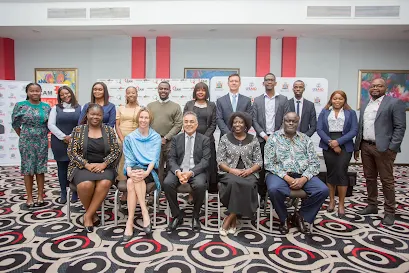THE TEACHER-CUM POLITICIAN
MOSES WALUBITA
MARK Mwika Tambatamba was a passionate traditionalist, educationist and a disciplinarian. He educated his children and many of his extended family members.
While the Chinese say: ‘’A journey of a thousand miles begins with a single step’’, Tambatamba appeared to have been inspired by the Kaonde proverb which says: ‘’Lweendo ntaangi, lubule ntaangi lwalaala’’, literally translated to mean: ‘’Any journey is about a leader, if it has no leader then it won’t be undertaken or successful’’.
His brother Mukombo Jonathan Tambatamba recalls: ‘’He took leadership seriously in whatever he did at family, village, district and national levels.’’
A baby born breached in Kikaonde carries the name of Mwika. Mark Mwika Tambatamba was a breached baby born on April 28, 1928 in Kasempa in North-Western Province of Zambia. He was the first born.
Mark Mwika Tambatamba’s father was Mukombo Tambatamba from Kanyakula Village where he later became the headman Kanyakula after retirement from government where he was the head messenger for Kasempa district.
Mark Mwika Tambatamba’s mother was Sambaliya Tambatamba from Ngambo Village. Being matrilineal, Kaonde children inherit the clan of their mothers.
Mukombo Jonathan Tambatamba says all Kaonde chiefs are based on clans. While Mark Mwika Tambatamba’s father was from the goat (Bena Mbuzhi) clan his mother Sambaliya Tambatamba was from the mushroom (Bena Kyowa) clan and a princess in senior chief Kasempa’s royal establishment.
As such, Mark Mwika Tambatamba was a possible candidate to inherit the senior chief Kasempa’s throne when it became vacant at some point but opted not to be considered.
Mark Mwika Tambatamba was a traditionalist who supported the royal establishment very well.
One of the key contributions to the senior chief Kasempa’s royal establishment and the very people of Kasempa was his pioneering of the ‘’Juba ja Nsomo’’ traditional ceremony for the Kaonde people of senior chief Kasempa.
Mark Mwika Tambatamba was married to Lyness Tambatamba and had nine children.
The current Minister of Labour and Social Security Brenda Mwika Tambatamba is the first born.
Brenda Mwika Tambatamba is Member of Parliament (MP) for Kasempa, the same constituency that her father led and also the first woman MP for the area.
In an interview, Mukombo Jonathan Tambatamba said: ‘’Mark Mwika Tambatamba served Kasempa Constituency from 1973-1988, a period of 15 years is todate the longest serving Kasempa MP.’’
Freedom fighter and former Member of United National Independence Party (UNIP Central Committee Bautis Kapulu remembers Mark Mwika Tambatamba as a humble person and hard working.
Kapulu first Mark Mwika Tambatamba in Luapula Province where he served as District Secretary for Mwense when Kapulu was privileged to serve as Minister of State.
‘’I did not stay long’’, Kapulu recalls.
The two politicians were reunited when Mark Mwika Tambatamba served as Kasempa MP and Kapulu was UNIP Central Committee Member in charge of North-Western Province.
Mark Mwika Tambatamba’s humility was shown during the official opening of the Solwezi Teacher Training College in North-Western Province when he stood up to interpret for Joshua Munkena who was Governor for Kasempa District.
In attendance was His Excellency Kenneth David Kaunda, President of the Republic of Zambia at the time, who commended Mark Mwika Tambatamba for his humility despite being a Cabinet Minister.
Kapulu worked with Mark Mwika Tambatamba at Lusaka Province as Provincial Secretary for two years until change of Government in 1991 following general elections which ushered in the Movement for Multi-Party Democracy (MMD).
Kapulu says: ‘’That is the man (Mark Mwika Tambatamba) of humble character’’
Mark Mwika Tambatamba did his primary school at Mutanda Mission School in Kasempa District.
Upon completion of Standard 6 upper he went to Kitwe Teacher Training College on the Copperbelt to train as primary school teacher.
When he completed he was posted to Kasempa Primary School where he rose to the position of head teacher.
During his time as head of the school, Mark Mwika Tambatamba supported freedom fighters, high ranking UNIP officials such as UNIP President Kenneth David Kaunda, Simon Mwansa Kapwepwe and Matiya Ngalande.
In the early days of Zambia’s Independence, Mark Mwika Tambatamba was sent to Australia by government for further studies in recognition of his hard work.
When he returned from Australia, he was promoted to the position of inspector of schools. He briefly worked in Kasempa before being transferred to Lusaka in 1967 in the same position.
In 1973 after so much pressure from the people of Kasempa he retired from the civil service to pursue a political career with limited resources.
Mark Mwika Tambatamba contested the Kasempa parliamentary seat as an MP.
He won the seat with a massive vote margin as a second area MP. In 1975, he was appointed as Minister of State for Mines and Industries by President Kenneth Kaunda.
Among Mark Mwika Tambatamba’s key positions was that of Minister of Information and Broadcasting. The construction of the Mass Media Complex on Alick Nkhata Road in Lusaka was being done under his tenure as Information Minister.
His passion included education. Kasempa Boys Secondary School was built during his term as MP.
Mark Mwika Tambatamba died on August 11, 1992 in Lusaka and was buried four days later at Kasempa’s Kamilonga Royal Cemetery.




















